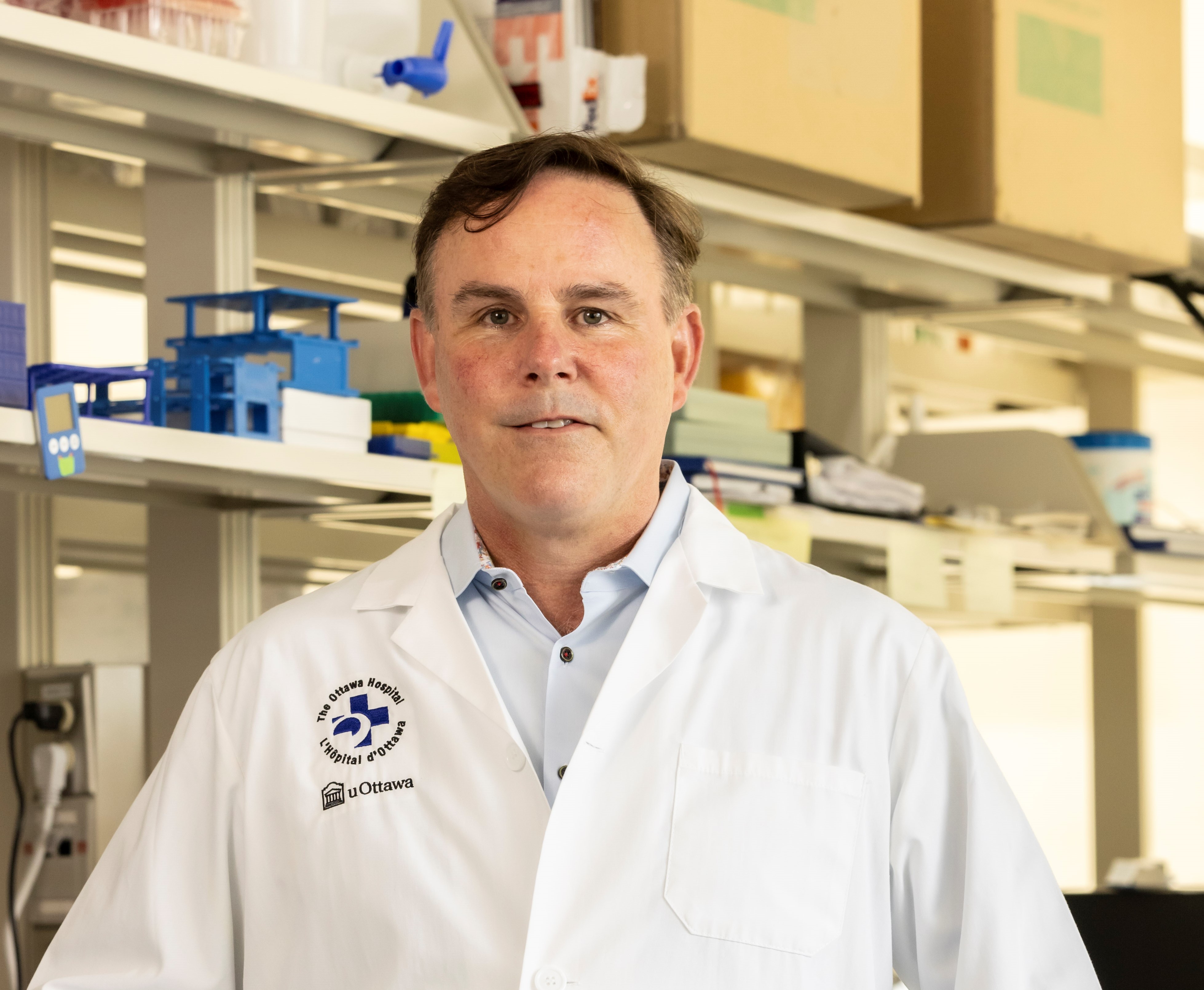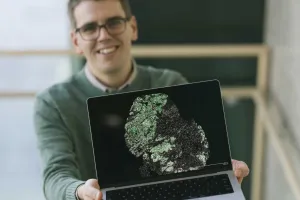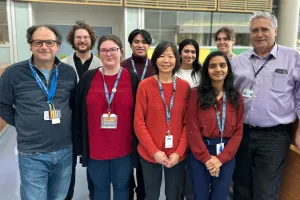Supercharging stem cells
 "Epigenetics is what makes our stem cells supercharged when we're young and completely ineffective when we're old," says Dr. Jeff Dilworth. "And what's exciting is that epigenetic changes are reversible."When it comes to scientific inspiration, an unconventional individual stands out in Dr. Jeff Dilworth's mind: a 95-year-old-man who donated his body to science more than a decade ago. Although the man had been dead for more than six days, researchers in France were able to 'revive' his muscle stem in the lab and turn them into muscle-making super cells.
"Epigenetics is what makes our stem cells supercharged when we're young and completely ineffective when we're old," says Dr. Jeff Dilworth. "And what's exciting is that epigenetic changes are reversible."When it comes to scientific inspiration, an unconventional individual stands out in Dr. Jeff Dilworth's mind: a 95-year-old-man who donated his body to science more than a decade ago. Although the man had been dead for more than six days, researchers in France were able to 'revive' his muscle stem in the lab and turn them into muscle-making super cells.
"When you're 95 years old, it's pretty difficult to grow new muscles, but this study showed that the potential is there," explains Dr. Dilworth, a senior scientist at The Ottawa Hospital and professor at the University of Ottawa.
Epigenetics key to understanding stem cells
While muscle stem cells keep the same DNA sequence throughout life, the way this DNA is packaged can be affected by age, diet, exercise and other environmental factors. This is called epigenetics and Dr. Dilworth believes it is crucial for understanding stem cells and how they can be harnessed to help us live longer and healthier.
"Epigenetics is what makes our stem cells supercharged when we're young and completely ineffective when we're old," he says. "And what's exciting is that epigenetic changes are reversible. Diet and exercise can make a difference, but we may discover other ways to modify this as well."
Major discovery could lead to new ways to enhance muscle repair
By focusing on epigenetics, Dr. Dilworth and his team recently made a major discovery related to muscle repair, a breakthrough that was recognized with The Ottawa Hospital's Chrétien Researcher of the Year Award for 2021.
Previously, it was thought that muscle stem cells would divide in a balanced way to repair an injury - carefully creating just enough muscle fibres to repair the damage while also preserving enough stem cells for future repair.
But Dr. Dilworth's research shows that when there's a catastrophic injury, muscle stem cells jump into a different gear - prioritizing immediate repair over self-preservation and then backtracking to replace the stem cells later.
"We found that muscle stem cells go 'all in' to repair the muscle fibers at the expense of the stem cell niche, and then the cells that were not incorporated into new muscle fibres go back and repopulate the stem cell niche," explains Dr. Dilworth. "This research overturned the dogma, and it changes the way we think about how we could treat diseases like muscular dystrophy."
Dr. Dilworth is collaborating with orthopedic surgeons, neuromuscular specialists, nutrition experts and engineers to harness his research to improve human health, but he knows it isn't going to happen overnight.
"As new technologies come along, we have to revisit some of the dogma and develop a better understanding of what stem cells are," he says. "The potential is huge, but have to take it one step at a time."
Dr. Dilworth is a senior scientist in The Ottawa Hospital's Regenerative Medicine Program, which includes the Sprott Centre for Stem Cell Research and the Sinclair Centre for Regenerative Medicine. He is also Professor in the University of Ottawa's Faculty of Medicine.
About The Ottawa Hospital
The Ottawa Hospital is one of Canada's top learning and research hospitals, where excellent care is inspired by research and driven by compassion. As the third-largest employer in Ottawa, our support staff, researchers, nurses, physicians, and volunteers never stop seeking solutions to the most complex health-care challenges. Our multi-campus hospital, affiliated with the University of Ottawa, attracts some of the most influential scientific minds from around the world. Backed by generous support from the community, we are committed to providing the world-class, compassionate care we would want for our loved ones. www.ohri.ca
About the University of Ottawa
The University of Ottawa is home to over 50,000 students, faculty and staff, who live, work and study in both French and English. Our campus is a crossroads of cultures and ideas, where bold minds come together to inspire game-changing ideas. We are one of Canada's top 10 research universities--our professors and researchers explore new approaches to today's challenges. One of a handful of Canadian universities ranked among the top 200 in the world, we attract exceptional thinkers and welcome diverse perspectives from across the globe. www.uottawa.ca
Media Contact
Jenn Ganton
613-614-5253
jganton@ohri.ca
Learn more about:
The Ottawa Hospital is a leading academic health, research and learning hospital proudly affiliated with the University of Ottawa and supported by The Ottawa Hospital Foundation.


